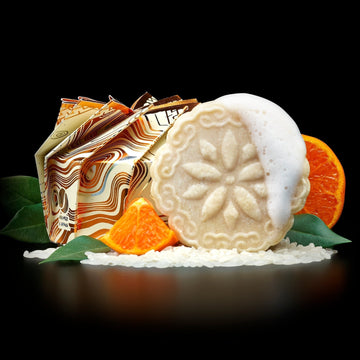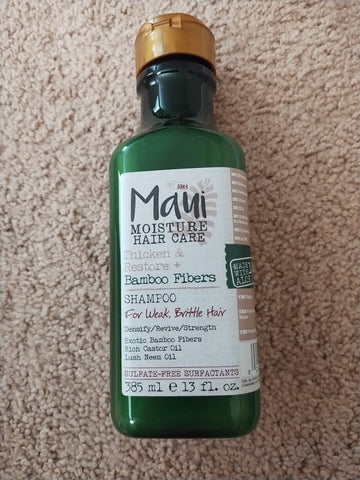Ah, the age-old question: Does black hair make you look pale? Let’s dive into this topic and explore the truth behind this widely debated topic.
As someone with black hair myself, I’ve often wondered if it has any impact on my overall complexion. Of course, our appearance is subject to more factors than just hair color, but it’s an interesting topic to consider.
Hair color has always been a critical component in the ever-evolving world of fashion and beauty. the influence of skin tone on hair color perception and the role of undertones play a big part in this discussion. It’s important to remember that a variety of additional factors impact one’s overall look, such as clothing choices and makeup.

Page Contents
Key Takeaways
- The myth around black hair making you look pale is just that – a myth
- Both skin tones and undertones play a significant role in the perception of hair color
- Your overall appearance can be influenced by factors like clothing and makeup, not just hair color
Does Black Hair Make You Look Pale

Let me tell you a little secret. You might have heard that black hair makes you look pale, but that’s not entirely true.
Sure, black hair does have a tendency to create a contrast with lighter skin tones, which might give the appearance of paleness.
However, it doesn’t mean that rocking your gorgeous black locks will make you look like a ghost.
First of all, people have different skin tones. Cool, warm, or neutral undertones all play a role in how black hair affects your complexion.
For instance, those with warm undertones will have more of a golden or yellow hue to their skin. In this case, the contrast created by black hair might make them look slightly paler, but it doesn’t mean they should shy away from the striking effect of black hair.
On the flip side, people with cool undertones, usually associated with blue, purple, or pink hues, could look more striking with black hair.
That’s because their skin tone has a natural coolness that is accentuated by the darkness of their tresses.
So, instead of looking pale, they might appear more dramatic and expressive.
The bottom line is that black hair doesn’t automatically make everyone look pale. There are a lot of factors at play, and everyone’s skin tone is unique. It’s worth experimenting and having some fun—if you’re curious about black hair, give it a try!
After all, the world of hair color is a playground, and there’s always room to explore and switch things up.
Lastly, let me remind you that confidence and personal style play a huge role in how you look and feel. Black hair, when styled well and worn with oomph, can look downright stunning.
So, don’t worry about whether black hair will make you look pale—focus on rocking your own style and feeling fabulous.
Influence of Skin Tone on Hair Color Perception

As someone who loves experimenting with hair colors, I’ve come to realize that skin tone plays a significant role in how our hair color looks. Let me enlighten you with my findings on how black hair affects how pale or otherwise light and dark skin tones look.
Light Skin Tone and Black Hair
When it comes to light skin tones, black hair can create a stark contrast which gives off a bold, and edgy vibe.
As I’ve discovered, the contrast can accentuate features like eye color. However, some people may feel that the dramatic contrast between light skin and black hair can make them look pale or washed out.
To avoid this washed-out effect, here’s a quick tip I’ve learned: try opting for a softer shade of black that leans towards dark brown, which can still provide that striking look without making your skin appear too pale.
Dark Skin Tone and Black Hair
On the other hand, for those with dark skin tones, black hair can be quite flattering.
Personally, I’ve found that black hair doesn’t make me look pale, but rather it enhances the richness and depth of my skin tone.
The natural contrast between dark skin and black hair creates a harmonious yet striking effect that highlights features in a more subtle way than with light skin tones.
However, similar to experimenting with different shades on light skin tones, dark skin’s natural contrast also benefits from playing with varying shades of black.
A softer black color, for example, can still contribute to the elegant contrast, but with a slight twist.
In the end, it is all about preference and finding the right balance between hair color and skin tone.
Whether you have a light or dark complexion, black hair can enhance your unique features, and knowing how different shades and contrasts affect your appearance will help you choose the best option for your own personal style.
On Undertones and Hair Color
As someone who enjoys experimenting with hair colors, I’ve learned a thing or two about how different hair shades can impact my overall appearance. It’s crucial to take our skin’s undertone into consideration.

Let’s dive into how undertones play a role in determining whether black hair makes you look pale or not.
Warm Undertone and Black Hair
If you’re like me and blessed with a warm undertone, which means your skin has yellow, golden, or peachy hues, black hair can make your skin appear somewhat washed out. It might not bring out the radiance in your complexion as effectively as warmer hair colors.
However, to bring some balance to these situations, I suggest incorporating highlights or lowlights in warmer shades like caramel, honey, or mahogany.
Cool Undertone and Black Hair
Having a cool undertone means your skin carries pink, red, or blue hues. In my experience, black hair really shines (pun intended) in this scenario.
With a beautifully cool undertone, black hair creates a striking contrast, making your skin appear radiant rather than pale or dull. It accentuates your natural coolness, granting you a breathtakingly elegant look.
Neutral Undertone and Black Hair
Ah, the elusive neutral undertone—where your skin boasts a mix of both cool and warm hues. In my neutral undertoned days, I’ve found that black hair was a pretty safe choice. Because of the balanced nature of your undertone, black hair won’t necessarily make you look pale. Instead, it can provide a nice harmony.
Additional Factors Impacting the Look
Sun and Hair Color
As someone who has tried various hair colors, I must say the sun plays a crucial role in how our hair color appears. While black hair might make you look pale indoors, stepping out into the sunshine can change the game entirely.
The sun’s rays can warm up our complexion and make it look more radiant, even with black hair.
For instance, I noticed that my skin would look naturally highlighted when under direct sunlight. Furthermore, the sun tends to bring out the natural undertones of our skin, which work harmoniously with darker hair colors like black.
Outfit Colors and Hair Shade
Now, let’s talk about another factor that can make a difference: outfit colors. We all know that wearing the right colors can make or break our overall appearance, right? Turns out, it’s also true for selecting our hair color.
When I had black hair, I realized that certain colors and styles in my wardrobe made me look less pale.
For example, wearing brighter colors like yellow or pastel shades really helped create a contrast with my dark tresses, making my skin appear warmer and healthier.
On the other hand, I also found that wearing dark or muted colors could indeed make me look more washed out when my hair was black. Moral of the story: try experimenting with different outfit choices to find the perfect combination that flatters your skin tone and hair color.
Aging and Hair Color
Lastly, but certainly not the least, let’s touch upon the topic of aging and its relationship with hair color. As we age, our skin tends to lose some of its natural pigment, causing it to appear paler.
Being someone who loves changing up my hair, I found that during these times, black or dark hair colors might not be the most flattering choice.
You see, the contrast between the darker hair and pale skin can actually make the signs of aging more pronounced.
So, in my personal experience, as I aged gracefully, I opted for lighter hair colors to create a more balanced and youthful look. This isn’t to say that black hair should be completely avoided, but it’s worth considering how age could play a role in how it looks on you.
Dos and Don’ts of Black Hair On Different Skin Tones

Black Hair Do’s
I learned that when it comes to rocking black hair, there are some key tips to make sure it suits your skin tone. First, consider your undertones.
People with warm undertones should opt for softer black shades, like jet black or blue-black. Those with cool undertones can go for bolder colors such as natural black or darkest brown.
Here are some do’s for black hair:
- Do try temporary hair dyes or semi-permanent options before committing to a permanent black color. This will allow you to see how the shade looks on your skin without any long-term consequences.
- Do choose the right makeup. When wearing black hair, it might be necessary to adjust your makeup routine to maintain a balanced look. For instance, you can play up your eyes, lips, or cheeks to create some contrast between your features and your hair color.
- Do take care of your hair’s health. It’s important to keep your locks in good condition, especially when dying them black. Use hair masks, moisturizing treatments, and avoid heat styling as much as possible to maintain a healthy shine.
Black Hair Don’ts
While black hair can look stunning, there are also some pitfalls to avoid. By steering clear of these don’ts, you can ensure your black hair complements your skin tone.
- Don’t go for a color that makes you look washed out. You can prevent this by choosing a shade that suits your skin’s undertone or by simply opting for a more natural shade of black.
- Don’t be afraid to experiment with different shades of black until you find the perfect one for you. No two people have the same skin tone, so it’s only natural that a single color won’t suit everyone.
- Don’t slack on hair care. Black hair can sometimes appear dull if it’s not adequately taken care of. Use hair products specifically designed for dyed hair to keep your tresses vibrant, and remember to go for regular trims to reduce split ends.
By following these primary do’s and don’ts, you can successfully sport black hair that flatters your complexion, no matter your skin tone. Now, go ahead and embrace the dark side!
Different Shades of Black Hair

Jet Black
Ah, jet black.
The darkest shade of black hair you can get. It’s so dark (how dark is it?), it almost looks like I’m wearing a raven on my head! Jet black hair can make my skin appear paler, but it all depends on my undertone. If I have cool or neutral undertones, jet black hair could make me look pale.
Just remember, pale doesn’t mean unattractive! It can create a striking and dramatic contrast with my fair skin.





